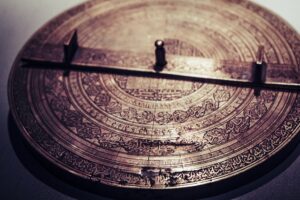We all know that Muslim scholars in the golden age of Islam provided many of the foundations of modern science that we are studying today and on which European civilization was based in these ages. Surprisingly, there are many Muslims who do not know anything about these.. In this research, we present one of the most Muslim scholars. Make an impact in both the Islamic world as well as the Western world.
Read Also Who is the greatest man in the world
Ibn Sina
Abu Ali Al-Hussein Ibn Sina, an Islamic philosopher, physician, and scientist in the fields of natural sciences and mathematics, was born in the year 980 AD in Afshana, near Bukhara, and his father is Abdullah, born in the city of Balkh, and his mother, Sitara, from the city of Tajik. The Islamic world and Europe in the medieval period, as his books and discoveries in medicine were taught in European universities until the seventeenth century.
Abdullah was keen for his son to receive the best education, as he was a noble and intelligent child, as at the age of ten he completed the Qur’an and finished his studies for it and became proficient in the Arabic language and its literature, then he turned to studying Islamic law, jurisprudence, philosophy, logic, and natural sciences, and he remained There he was there for 6 years, then he became a doctor at the age of eighteen and he had studied medicine since the age of thirteen, and he had a well-known reputation in medicine in his country and its surroundings, while he became famous in Europe after translating his works into Latin and Hebrew and spreading them there.
His life
Abdullah Ibn Sina’s father was working as a governor in one of the villages, then he moved with his family to Bukhara and worked in an administrative position also with Noah bin Mansour, Sultan of Bukhara, and then Ibn Sina began learning in the field of jurisprudence with his teacher Ismail Al-Zahid, and then he went to study medicine with A number of teachers, Ibn Sina described the field of medicine as easy. Later, Ibn Sina treated Sultan Mansour bin Noah after he contracted a disease that baffled the doctors of the city. The Sultan rewarded him and allowed him to enter his royal library, which helped Ibn Sina in his self-education of philosophy and science, as he began writing at the age of 21, as He wrote in several fields such as mathematics, engineering, astronomy, physics, metaphysics, linguistics, poetry, and music.
Ibn Sina continued to work in the royal court as a physician until the death of the Sultan, then he moved to Gorgan, an area close to the Capsian Sea, where he taught astronomy and logic, and also began writing his most famous book on medicine, which is the Book of Laws in Medicine, and then moved to the region Al-Rayy, practiced medicine in it, and wrote about 30 books, then he moved to Hamedan, where he treated its ruler, Shams al-Dawla, from severe colic, so he became his personal physician and a close friend to him, and he appointed him prime minister. Isfahan until he finds a position for him in his royal court, but the new Emir Hamdan knew about this and imprisoned him, and Ibn Sina wrote several books while he was in prison, then after his release he moved to Isfahan, where he found stability and safety, and worked in the service of Alaa al-Dawla until that Passed away.
His achievements in the field of medicine
The medical field is considered a reason for Ibn Sina’s fame, especially his book Al-Qanun fi al-Tibb, which is considered a comprehensive encyclopedia of medical information and knowledge, in which he explained diseases that afflict a person in all parts of his body, and among his discoveries also in the field of medicine are the following:
- Discover infection and understand the nature of infectious diseases and how they are transmitted.
- He was the first to distinguish the difference between hemiplegia of internal cause and that of external cause. He was the first to describe gynecological diseases such as vaginal obstruction, fibroids, and puerperal fever.
- Explain the stroke. Show the effect of mental illness on the rest of the body and its nerves, and the need to undergo psychological treatment.
- Use iron and fire to stop the bleeding.
- He prescribed 670 drugs to treat diseases.
- Explain the effect of pollution on the human body and the diseases that may befall it because of it.
- He made contributions to the science of anatomy, explaining the parts of the eye accurately.

His achievements in other fields
In the field of physics: He invented a device to accurately measure length, described the movement of the body, knew the nature of light and how it was emitted, as he discovered that light is faster than sound, explained how sound can travel through sound waves in the air, and studied the different forms of energy.
In astronomy: He invented a device to monitor the coordinates of the stars, as he discovered that the stars are self-luminous, and he made many astronomical suggestions, such as that Venus is closer to the sun than the earth.
In the field of music: wrote many short poems.
In the field of botany: he explained the structure of the plant, and explained all its parts accurately.
In the field of Mathematics: He wrote many books in this field, including: Abstract of the Science of Form, Risala Al-Zawiya, and Euclid’s Brief.
Avicenna’s philosophy
Ibn Sina linked philosophy to religion, so he accepted some of the previous philosophical ideas and rejected others. For example, he explained the concept of the Platonic nobility of rebirth, but in return he rejected some of his other ideas such as the pre-existence of the soul, and he also used Aristotle’s logic to develop his arguments.
His most famous works
He wrote more than 400 works, of which about 240 remained and were published. They were in various fields such as medicine, science, music, philosophy, medicine, religion, and other fields as well. The most prominent of these works are:
- The Law in Medicine: It is a medical encyclopedia consisting of five volumes with a total of more than one million words.
- The book contains medical information from ancient and Islamic sources.
- The Book of Healing: This book is divided into four scientific and philosophical parts, namely: logic, natural sciences, mathematics, and metaphysics. It was said that this book is the healing of the soul.
- And many books in various fields.
Ibn Sina’s Effects on Medieval Western Scholars
The fair Western scholars confirmed that the Europeans took knowledge from the hands of the Muslims when they contacted them and learned about their civilization, so they were satisfied after the darkness, and then they reached what they reached of this great scientific progress in which they live today. The French historian Gustave Le Bon summed up the influence of the civilization of Islam in the West, and attributed the merit of the civilization of Western Europe to it, and said that the influence of this civilization with its scientific, literary and moral teachings is great, and one cannot know the great influence that the Arabs had in the West unless he imagines the state of Europe in the time that entered Civilization in it. Western Muslim scholars excelled in medicine, philosophy, geography and other sciences, and among the most important scholars whose books were translated into Latin were Ibn Sina’s books on law. The study concluded that Europe followed the science of surgery with the science of anatomy in the name of Ibn Sina, and in the soul the influence of Ibn Sina’s book (The Self) was translated into Latin and spread in Europe, and Ibn Sina had a wide impact on Christian thinkers such as the thinker Albert the Great and Thomas Aquinas with Ibn Sina’s ideas on the spirituality of the soul And its immortality, and the most prominent scholar, Jolson, influenced Ibn Sina in the thirteenth century AD in Christian thought. The study will explain the life of Ibn Sina and then mention his impact on the West in the Middle Ages in the fields of medicine, psychology, knowledge and other sciences through the descriptive and analytical approach.
Ibn Sina’s death
Ibn Sina died at the age of fifty-eight in the year 1037 AD in Iran, due to a disease in his digestive system, which led to pain in his stomach, and he donated all his possessions to slaves and charities before his death.
Read Also facts about Muhammad, may God bless him and grant him peace


1 thought on “Ibn Sina”
interesting for a very long time